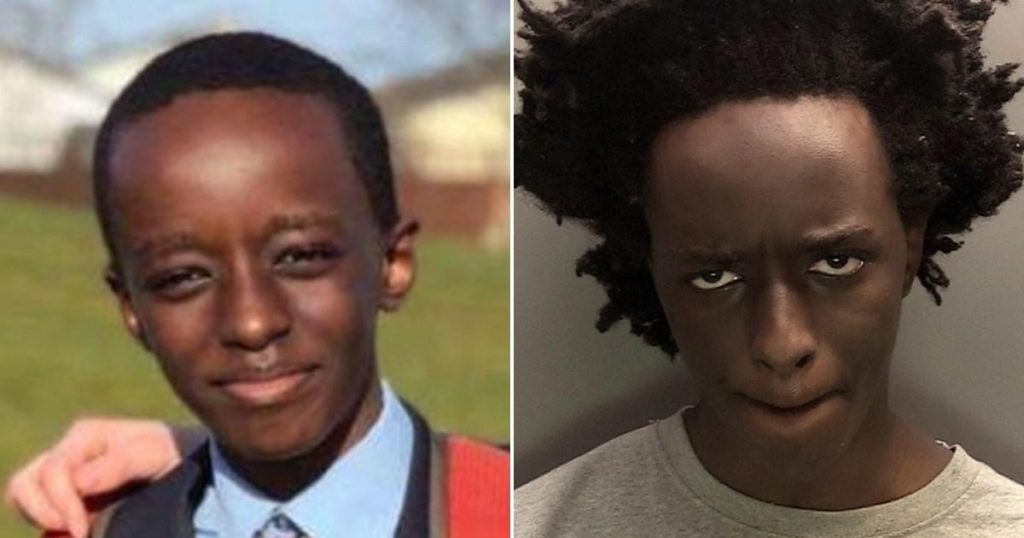Axel Rudakubana, an 18-year-old former child actor, has pleaded guilty to the horrific murders of three young girls – nine-year-old Alice da Silva Aguiar, six-year-old Bebe King, and seven-year-old Elsie Dot Stancombe – at a Taylor Swift-themed dance class in Southport, Merseyside, on July 29th of the previous year. His guilty plea also extends to the attempted murders of eight other children and two adults, Leanne Lucas and Jonathan Hayes, who were also present at the event. This brutal act shocked the nation and sparked civil unrest fueled by false information portraying Rudakubana as a Muslim asylum seeker. In reality, he was born in Wales to Rwandan parents of Christian faith. This case raises troubling questions about missed opportunities for intervention and the potential warning signs that may have been overlooked.
Rudakubana’s early life presents a stark contrast to the horrific crimes he committed. He displayed a passion for acting during his childhood in Cardiff, even appearing in a BBC Children in Need advertisement as Doctor Who. Neighbors described his family as “normal,” with Rudakubana being portrayed as a shy and quiet child. Following a move to Banks, Lancashire, due to his father’s work in Liverpool, Rudakubana’s behavior began to change. He was diagnosed with autism and became increasingly withdrawn, developing a disturbing fascination with genocides, particularly the Rwandan genocide, a tragedy with deep connections to his family’s background. His Tutsi ethnicity mirrored the targeted group in the Rwandan atrocities, while his father was reportedly a member of the Rwandan Patriotic Army that fought against the Hutu-led regime.
Rudakubana’s troubling behavior escalated during his teenage years. He was reportedly expelled from Range High School for bringing a knife onto school grounds and is said to have threatened students and staff with a hockey stick inscribed with their names. Subsequent enrollment in a specialist school saw continued concerns raised about his violent tendencies. Alarmingly, he was referred to the Prevent counter-terrorism program three times, once in 2019 and twice in 2021, including one instance prompted by his expressed interest in perpetrating a school massacre. Despite these red flags, Prevent assessed him as posing no terrorist threat. The subsequent tragedy raises critical questions about the efficacy of the program and whether earlier interventions could have averted the horrific outcome.
Following the attack, a search of Rudakubana’s bedroom uncovered disturbing evidence of his attempts to create the deadly poison ricin, although there’s no indication he intended to use it during the dance class attack. A PDF of the al-Qaeda training manual was also found on his computer, leading to charges of producing a biological toxin and possessing a document likely to be useful for terrorism. Despite this, no clear motive for the dance studio attack has emerged, and no other extremist material was discovered. The lack of a declared motive further complicates the understanding of Rudakubana’s actions, leaving investigators and the public grappling with the reasons behind this senseless act of violence.
The case highlights concerns about potential systemic failures in addressing Rudakubana’s mental health. A former school friend described him as a “ticking time bomb,” emphasizing that his mental health issues were known to both those around him and the authorities. Following his arrest, Rudakubana refused to communicate with psychiatrists, making it difficult to assess his mental state. While no definitive mental health disorder requiring hospitalization was identified at the time, the concerns raised by those who knew him suggest a deeper examination was necessary. The complexities of his case underscore the need for improved mental health support and intervention strategies, particularly for young people exhibiting troubling behaviors.
Rudakubana’s behavior throughout the legal proceedings has been characterized by silence and a lack of engagement. He often shielded his face with his sweatshirt or a mask, refusing to speak until his eventual guilty plea. The prosecution described him as having a “sickening and sustained interest in death and violence,” noting his complete lack of remorse. The chilling nature of his actions, coupled with his apparent indifference to the suffering he caused, leaves a community and a nation grappling with the enormity of the tragedy and searching for answers in the wake of such senseless violence. Rudakubana now awaits sentencing, with the court left to determine an appropriate punishment for the devastating impact of his crimes.











